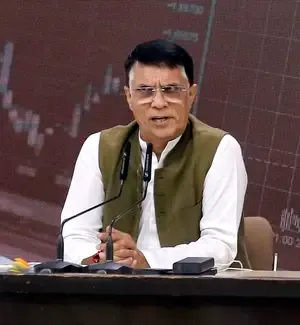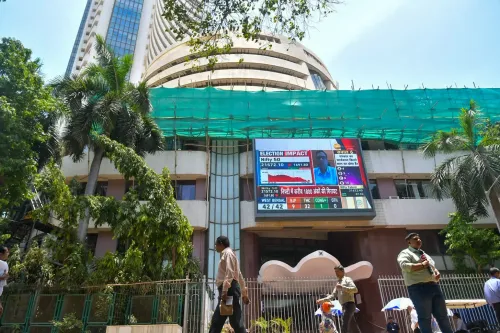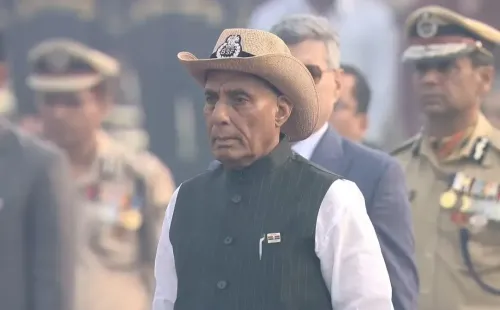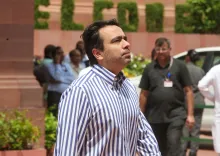Is Petrol Chori Benefitting Nitin Gadkari’s Sons?

Synopsis
Key Takeaways
- Pawan Khera accuses Nitin Gadkari of financial impropriety regarding the ethanol policy.
- Inflated profits for Gadkari’s sons' companies amid rising fuel prices.
- Failure to deliver promised cheaper fuel options to the public.
- Environmental concerns regarding the use of E20 fuel.
- Negative impact on farmers' income due to ethanol production practices.
New Delhi, Sep 4 (NationPress) In a pointed critique of the BJP administration, Congress figure Pawan Khera on Thursday accused Union Minister for Road Transport and Highways Nitin Gadkari of transforming India's ethanol blending initiative into a “family fortune,” which purportedly benefits his sons’ enterprises.
Khera contended that while ordinary citizens face escalating fuel prices, companies associated with Gadkari’s family have amassed extraordinary profits. “First vote chori, now petrol chori, by Modi ji. A government which won by a vote milawat, is now running the country on Milawat,” Khera remarked.
He highlighted that Cian Agro Industries Infrastructure Ltd, owned by Gadkari’s son Nikhil, experienced a revenue surge from Rs 18 crore in June 2024 to Rs 523 crore by June 2025, with stock prices skyrocketing over 2,100 percent in just eight months. Another son, Sarang, serves as director of Manas Agro Industries, also engaged in ethanol production.
“While the common man’s wages have stagnated and declined, Cian Agro’s financial ascent is staggering,” he stated.
He further asserted that the ethanol program has failed to fulfill its 2018 promise of affordable fuel. Gadkari had guaranteed diesel at Rs 50 per litre and petrol alternatives at Rs 55, but petrol has instead risen from Rs 71.41 in 2014 to nearly Rs 95 in 2025. “Seven years into blending, not a single paisa relief has reached the common man,” Khera added.
Citing technical studies, he alleged that E20 fuel reduces engine lifespan by 25 percent and leads to higher maintenance costs, with mileage reduction exceeding official estimates. “Although NITI Aayog acknowledges only up to 6 percent mileage reduction, real-world feedback suggests far greater performance issues,” Khera noted.
“Ethanol plants are not purchasing grains from local farmers at Minimum Support Prices (MSP) but instead rely on inexpensive grains from government stock. The Food Corporation of India (FCI) sells grains such as rice to ethanol plants at Rs 22.50 per kg, while the economic cost of this grain stands at Rs 39.75 per kg. This situation not only undermines farmers' income but also strains national food reserves,” he elaborated.
Khera also raised concerns about conflicts of interest, noting ethanol’s reliance on sugarcane despite assurances of production from waste and wood.
He accused Gadkari and associates in the RSS of supporting sugar mills in Maharashtra to uphold the policy initiative.
The Congress leader posed five inquiries to Prime Minister Narendra Modi, including whether the Lokpal will investigate Gadkari and his family and who is “pocketing the profits” from the ethanol initiative.









